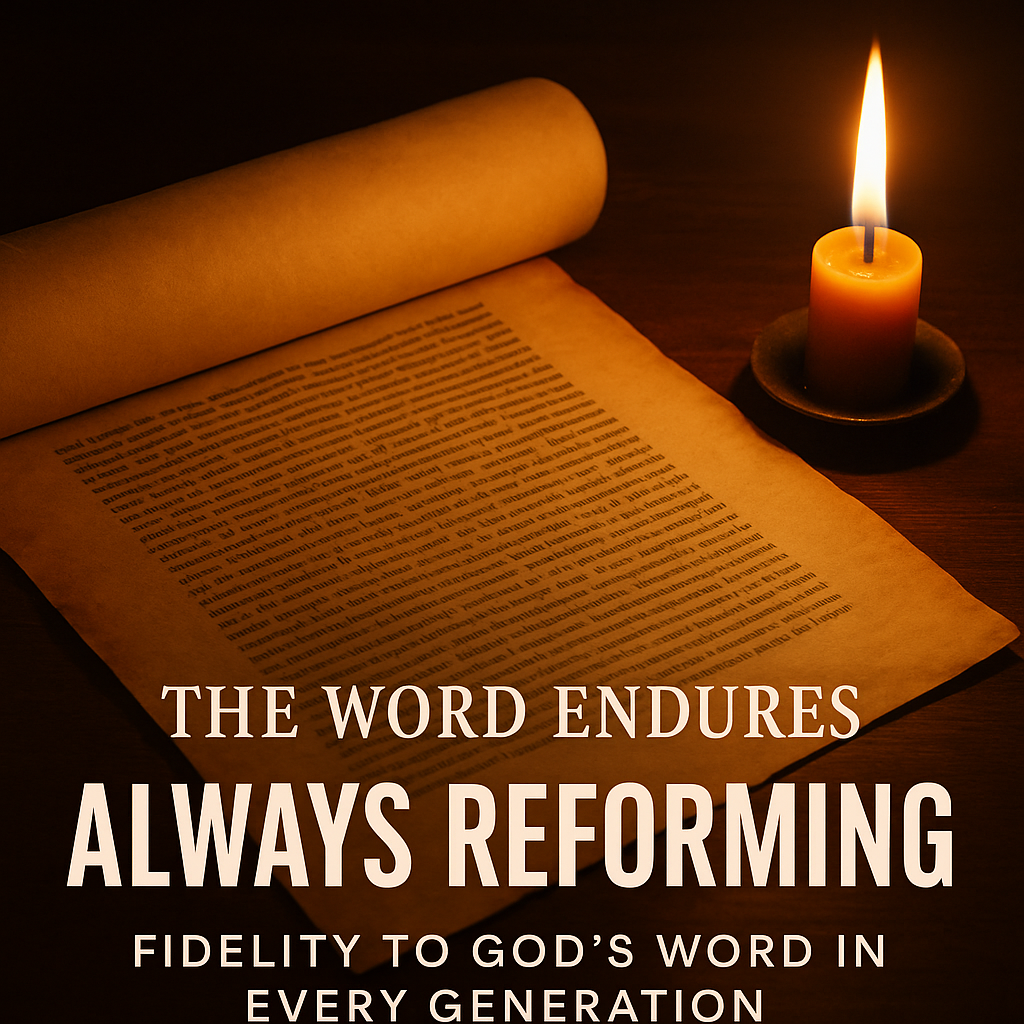⏱️ Estimated Reading Time: 4 min read
Always Reforming: Fidelity to God’s Word in Every Generation
By James Williams
As we consider the Protestant Reformation this month, we need to understand where it began. It was October 31, 1517, when Martin Luther nailed his Ninety-Five Theses to the door of the Castle Church in Wittenberg. Luther simply sought to begin a discussion about abuses and false teaching in the church. Little did he know, this would spark a movement that transformed the church and Western civilization.
Someone might ask, “What relevance does the Reformation have for today?” They might also ask, “Why should we learn about what happened?” After all, it was about five hundred years ago—so how does this affect our lives today? Today, we’ll look at the importance of learning from history.
Learning from History
We’ve probably all heard the famous quote, “Those who do not learn history are doomed to repeat it.” Ecclesiastes tells us, “There is nothing new under the sun.” There’s wisdom in seeking to learn lessons from the past while hoping to do better in the future.
We study history in schools because it matters. In the United States we study national history; Texans study Texas history. We examine events like World War II to remember what happened and what could happen again if we’re not diligent. Learning from past mistakes helps prevent us from repeating them.
History not only teaches us—it inspires us. We feel stirred by the phrase, “Remember the Alamo!” We sense courage when we see Raising the Flag on Iwo Jima. We love stories of drama, conflict, and bravery—because real history is filled with them. These stories don’t just fill our heads with facts; they capture our hearts.
In the same way, believers should desire to study church history. It is vital to see how the church has reached this point—the mistakes we have made and the ways God has used faithful servants in the past. Acts of bravery by godly men and women should inspire us to live for Christ today. Since God is sovereign, we can look at history and see His fingerprints—how He has worked to save imperfect people and use them to impact the world.
Studying history can also protect us from error as we consider what the church has historically believed and how she has refuted false teaching. Many modern-day heresies are simply repackaged versions of old errors, and knowing them can help us exercise discernment. Of course, the Bible is our sole authority, yet we can learn from godly men and women who were filled with the Spirit and studied Scripture. We study Scripture in community, and this community includes those who have gone before us.
The Reformation occurred in a time of great corruption and false teaching. The message of the gospel had been diluted, the people often lacked the Bible in their own language, and leaders led many astray. As we reflect on these things, let us learn how we can fight for the purity of the gospel and the centrality of God’s Word. Let us be inspired by men like John Hus, William Tyndale, and Hugh Latimer, and by many others who were strangled or burned at the stake for standing against corruption. May their stories encourage us to stand for our faith no matter the cost—even to the point of death.
Final Thoughts
The true gospel must be fought for in every generation. Likewise, in every generation, there will be an attack on God’s Word and on biblical preaching. We see these pressures in our day, and the church is called to stand and be light in the midst of darkness. Learning from faithful servants who have gone before us can help prepare and equip us. As we remember the Reformation, let us learn from the past and move forward proclaiming the good news of Jesus Christ as He has revealed it in Scripture.



